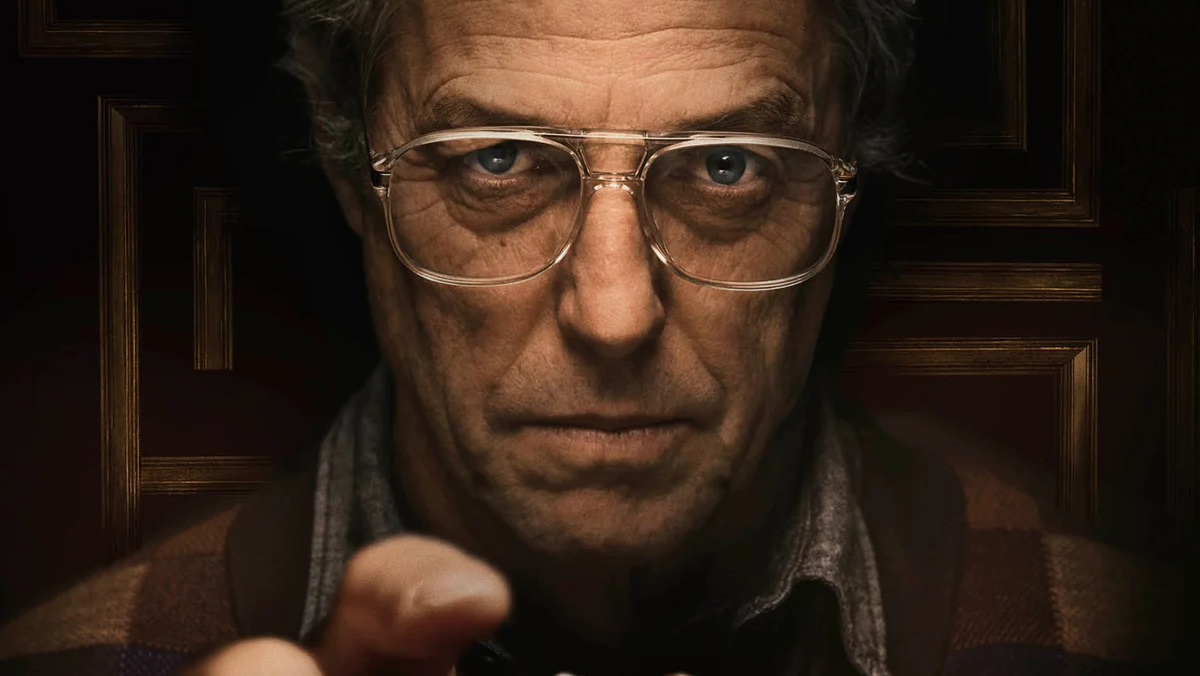Hugh Grant, the once undisputed king of charmingly bumbling rom-com protagonists, has been on a captivating journey of reinvention. He’s traded stammering apologies and endearingly floppy hair for scene-stealing villainy and characters that delve into the darker corners of the human psyche. His latest venture, “Heretic,” sees him fully embrace the horror genre, delivering a performance that is as intellectually stimulating as it is spine-chilling.
Heretic
“Heretic” plunges us into a chilling psychological battleground where two young missionaries, Sister Paxton (Chloe East), brimming with innocent zeal, and the slightly more worldly Sister Barnes (Sophie Thatcher), find their faith tested in the most terrifying way imaginable. Their mission? To visit Mr. Reed (Hugh Grant), a seemingly polite and erudite gentleman who has expressed interest in the Church of Jesus Christ of Latter-day Saints. However, what begins as a routine visit quickly spirals into a nightmarish game of cat-and-mouse, orchestrated by their seemingly affable host.
Grant, with his characteristic wit and a disarming twinkle in his eye, masterfully portrays Mr. Reed as a wolf in sheep’s clothing. He’s the epitome of charm and hospitality, welcoming the missionaries into his home with offers of blueberry pie and engaging conversation. But beneath the surface lurks a sinister intent, a desire to challenge, manipulate, and ultimately shatter the missionaries’ deeply held beliefs.
The setting of “Heretic,” Mr. Reed’s cavernous and architecturally bizarre house, becomes a character in itself. Its labyrinthine corridors, dimly lit rooms, and unsettling atmosphere amplify the sense of unease, making the audience feel as trapped and vulnerable as the missionaries. The house is a physical manifestation of Mr. Reed’s twisted mind, a place where logic and reason are distorted, and faith becomes a weapon.
As the narrative unfolds, “Heretic” transcends the typical horror tropes, delving into profound philosophical and theological discussions. Mr. Reed, armed with an encyclopedic knowledge of religious history and a penchant for pop culture references, dissects various belief systems, drawing parallels between modern religions and ancient myths. He challenges the missionaries’ understanding of faith, questioning the origins of their beliefs and the very existence of God. These intellectual sparring matches are both fascinating and unsettling, forcing the audience to confront their own convictions about the nature of faith and the meaning of life.
Hugh Grant’s performance in “Heretic” is nothing short of a revelation. He seamlessly transitions from charming host to menacing manipulator, his subtle shifts in demeanor and expression sending chills down your spine. His portrayal of Mr. Reed is a masterclass in understated villainy, making him a truly unforgettable antagonist. Grant’s ability to convey both intellectual brilliance and chilling malice is a testament to his remarkable range as an actor.
“Heretic” is not your average horror film. It’s a cerebral and suspenseful thriller that masterfully blends elements of psychological horror, philosophical discourse, and gruesome violence. The film’s slow-burn approach allows the tension to build gradually, culminating in a climax that is both shocking and thought-provoking. “Heretic” is a film that will stay with you long after the credits roll, prompting discussions and debates about faith, reason, and the nature of evil.
“Heretic” is a must-see for fans of intelligent horror and anyone who enjoys a good theological debate. Hugh Grant delivers a career-defining performance, and the film’s exploration of faith and reason will leave you pondering the mysteries of the universe long after the screen fades to black.





